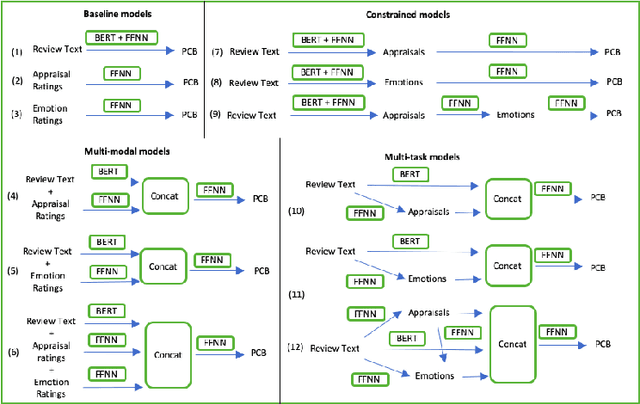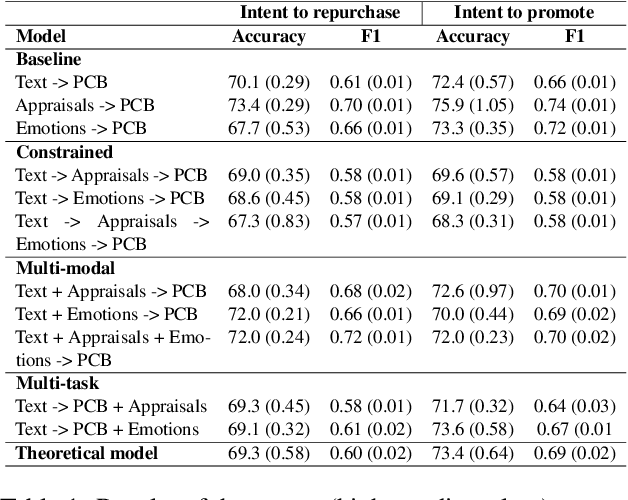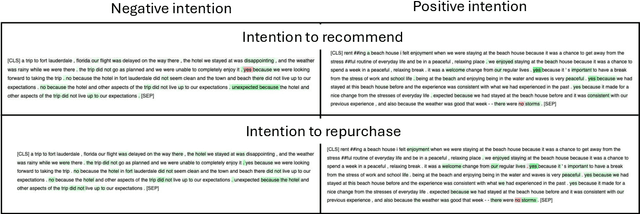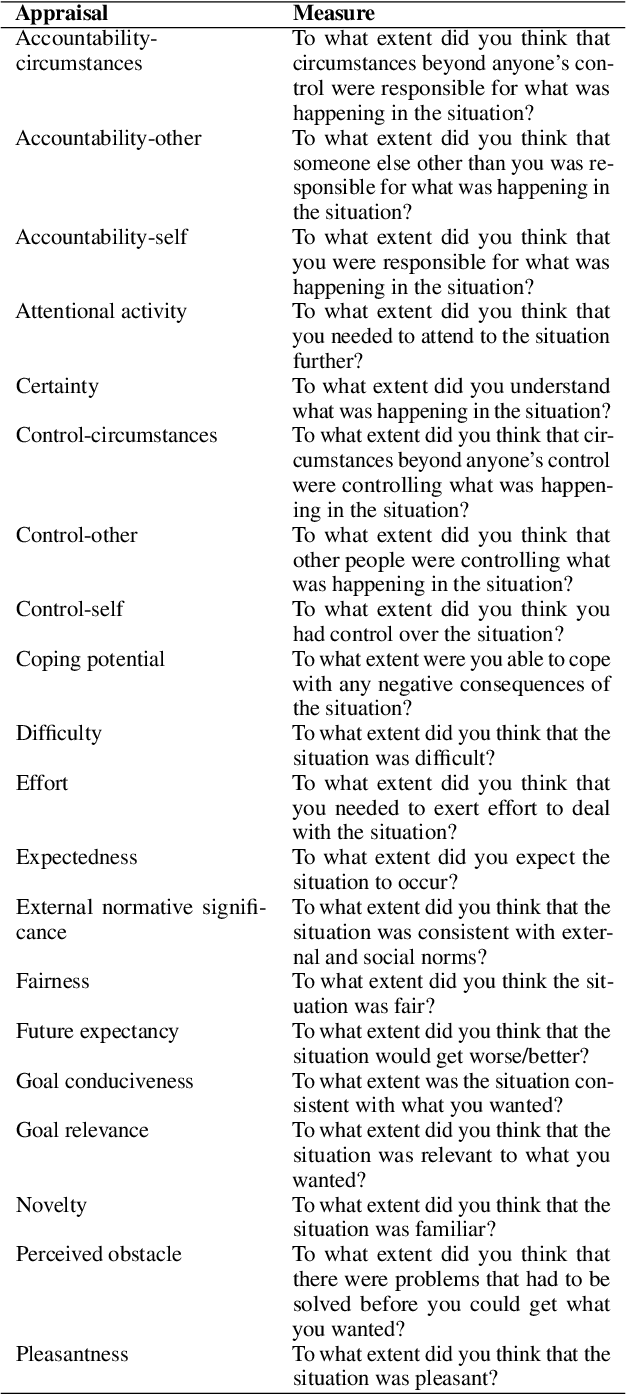Beyond Text: Leveraging Multi-Task Learning and Cognitive Appraisal Theory for Post-Purchase Intention Analysis
Paper and Code
Jul 11, 2024



Supervised machine-learning models for predicting user behavior offer a challenging classification problem with lower average prediction performance scores than other text classification tasks. This study evaluates multi-task learning frameworks grounded in Cognitive Appraisal Theory to predict user behavior as a function of users' self-expression and psychological attributes. Our experiments show that users' language and traits improve predictions above and beyond models predicting only from text. Our findings highlight the importance of integrating psychological constructs into NLP to enhance the understanding and prediction of user actions. We close with a discussion of the implications for future applications of large language models for computational psychology.
 Add to Chrome
Add to Chrome Add to Firefox
Add to Firefox Add to Edge
Add to Edge